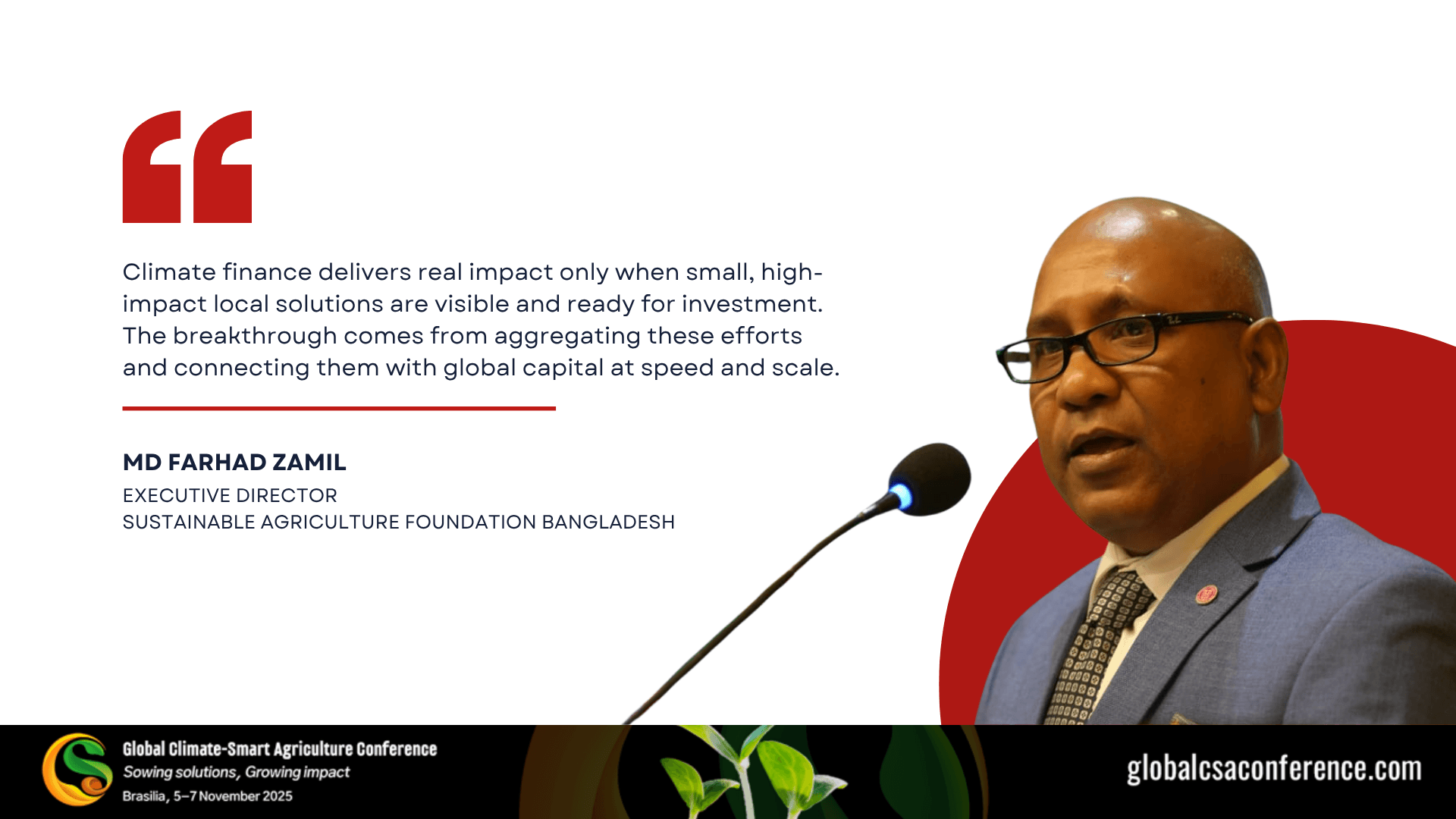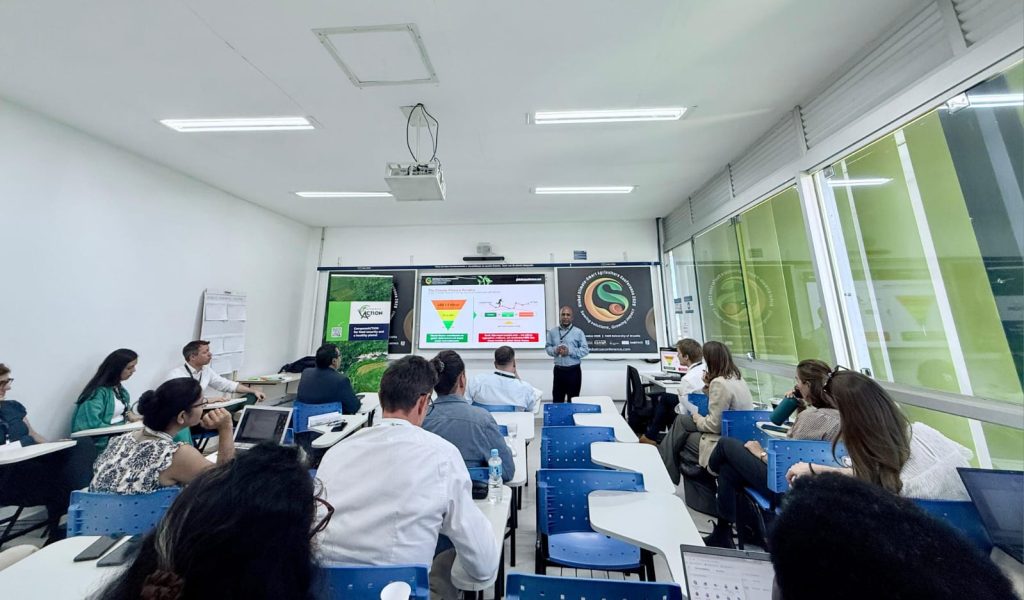Md. Farhad Zamil, Executive Director of SAF Bangladesh, attended the Global Climate-Smart Agriculture Conference 2025 in Brazil


The Global Climate-Smart Agriculture Conference 2025, held from 5–7 November 2025 in Brazil, brought together researchers, practitioners, policymakers, private sector leaders, and civil society representatives from around the world to share experiences and future directions for building climate-resilient food systems. This year, Md. Farhad Zamil, Executive Director of the Sustainable Agriculture Foundation Bangladesh (SAF Bangladesh), attended the conference and contributed through a presentation. His participation highlighted the idea of fostering climate finance in climate-smart agriculture, smallholder resilience, and agricultural innovation, drawing strong interest from global delegates.
Farhad’s Presentation: Sharing Bangladesh’s Experience
During the technical session focused on “Innovative Models for Smallholder Resilience,” Farhad delivered a presentation on “Scaling Climate-Smart Agriculture: The Smallholder Action Coalition for Climate Adaptation (SACCA) in Bangladesh.” Mr. Zamil has mentioned that Bangladesh has made significant strides through local projects and initiatives, but a notable gap remains between these on-the-ground efforts and global climate and development agendas. He emphasized that, according to Bangladesh’s 3rd Nationally Determined Contribution (NDC), the country requires approximately USD 8.5 billion per year for adaptation. However, The Climate Watch estimates that Bangladesh currently receives only ~USD 0.4 billion per year from external sources for adaptation, leaving a substantial funding shortfall.
He emphasized why climate finance is rising, but smallholders are left behind. As a solution, he showed how fragmented successful projects or innovations collectively create bigger resilience, and a climate action coalition can play a vital role there. He showcased a success story from Bangladesh and presented SAF’s initiative in creating an impactful platform, the Smallholder Action Coalition for Climate Adaptation (SACCA), aimed at securing climate funding and accelerating climate adaptation efforts.
He explained how SACCA works as a unified platform that transforms fragmented small-scale initiatives into a coordinated, climate-resilient system. SACCA brings together climate financiers, financial institutions, innovation organizations, agri-entrepreneurs, and first-mile delivery actors to support smallholder farmers through an integrated flow of production support, products and services, technical assistance, and climate finance. By aggregating innovations and connecting them to accessible funding, the model enhances farmer capacity, accelerates technology adoption, and strengthens the entire ecosystem needed for sustainable, climate-smart agriculture.
The Global CSA Conference 2025 concluded successfully, highlighting promising Brazil–Bangladesh collaboration prospects in climate-smart agriculture. Through active participation, Md. Farhad Zamil engaged in discussions that opened avenues for future joint initiatives while gaining valuable exposure to donors, researchers, and international partners. The conference created momentum for broader collaboration, project expansion, and strengthened global connections, setting a positive way forward for deeper engagement in climate-resilient agricultural development.
Share










